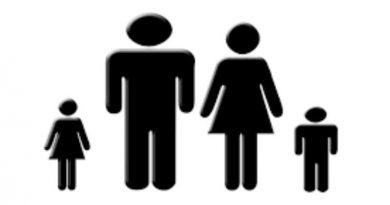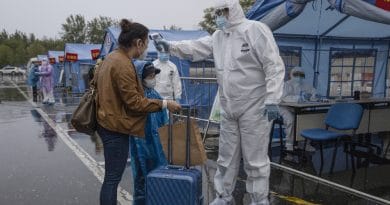55 different lineages of SARS-CoV-2 circulating in Nigeria- NCDC

By Chioma Obinna
As Nigeria make preparations for the vaccination of Nigerians. the Nigeria Centre for Disease Control, NCDC, has alerted that about 55 different lineages of Severe Acute Respiratory Syndrome Coronavirus 2 (SARS-CoV-2) is circulating in Nigeria and are also changing rapidly as of February 14 2021.
According to the Director-General of NCDC, Dr. Chikwe Ihekweazu, the diversity of SARS-CoV-2 strains indicate multiple introductions of the virus into Nigeria from different parts of the world and adds to evidence of community transmission in different states of Nigeria.
He further disclosed that: A total of 29 cases with the B.1.1.7 variant strain, which was first described in the UK and shown to be linked to increasing transmissibility, have so far been detected in Nigeria.
He said: “These strains were detected from cases in Lagos, FCT, Osun, Oyo, and Kwara and Edo States. All samples with the B.1.1.7 variant strain were collected from patients between November and January 2021.
“On the 11th of February, some recent SARS-CoV-2 genomes were seen to have distinct mutations and characterised as a new variant B.1.525.
“As at the 17th of February, these have been reported from United Kingdom (44), Denmark (35), Nigeria (30), United States of America (12), Canada (5), France (5), Ghana (4), Australia (2), Jordan (2), Singapore (1), Finland (1), Belgium (1) and Spain (1).”
Ihekweazu recalled that the first detected B.1.525 case in Nigeria was in a sample collected on the 23rd of November from a patient in Lagos State.
“So far, this has been detected among cases in five states in Nigeria. B.1.525 cases have also been reported in other countries in travellers from Nigeria.”
He further stated that currently there has not been evidence to indicate that in Nigeria, adding that, B.1.525 was a new strain, but not yet a variant of concern and that further analysis was ongoing.
In a statement made available to journalists, Ihekweazu who explained that all viruses naturally mutate over time, including SARS-CoV-2, the virus that causes coronavirus disease 2019 said since the first was identified, thousands of mutations have arisen and will continue to do so, allowing new strain lineages of the virus to evolve.
He, however, maintained that the vast majority of mutations would have little impact.
“But every once in a while, a virus mutates in a way that helps it survive and reproduce better than its progenitors. Viruses carrying these mutations can then increase in frequency due to natural selection. When mutant viruses have some advantage, they are referred to as “variants of concern”.
The advantage to the virus conferred by these mutations, which lead to the classification of “new variants” into “variants of concern”, can manifest in a. faster or more efficient transmission, increase risk of severe disease or death, escape immunity from past infection, escape immunity from vaccination, or evade detection by existing tests.
Speaking on the way forward, Ihekweazu stated that in the short term, a random selection of viruses would be collected and sent to ACEGID for sequencing weekly and coordinated by the NCDC National Reference Laboratory.
He further disclosed that an Implementation Group for SARS-CoV-2 Sequencing in Nigeria has been constituted to pull together a coordinated response to drive genomic surveillance for SARS-CoV-2 in Nigeria aimed at ensuring a coordinated response to identify variants of concern in Nigeria.
Other reasons he gave for the constitution of the implementation group includes; to provide a platform for sharing of specimens and access to sequence information, agree and standardise practice for the analysis of genomic data, provide a platform to study the impact of variants of concern on transmission, disease severity, vaccines, therapeutics and diagnostics, ensure strong communications to maintain public confidence, inform national COVID19 response strategies and provide advice on the establishment of genomic surveillance for pathogens of interest in Nigeria
He added that a concerted effort would be made in building up genomic surveillance in Nigeria.
Speaking on public health guidance, he said: “One way to prevent viruses from mutating is to prevent their transmission. This means that we must continue to #TakeResponsibility as members of the public. The public health measures to control this virus is the same, irrespective of the variant. Please continue to avoid close contact with others, wash your hands regularly using soap and running water, wear a mask properly, keep a distance of at least two metres from others.”
He stressed the need for Nigeria to develop its capacity for genomic surveillance to support the public health response as routine analysis of the genomic sequence data would enable the NCDC and its public health partners to identify variant viruses for further characterisation and investigate transmission, severity, immune escape and other facets that can dictate the impact and trajectory of the pandemic.
Related
Source link


